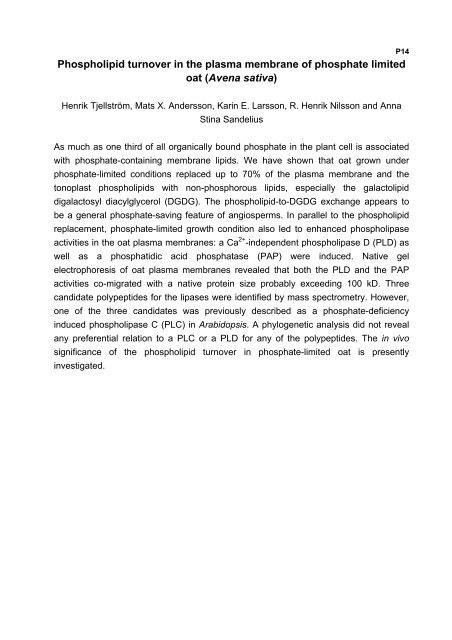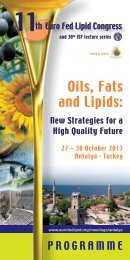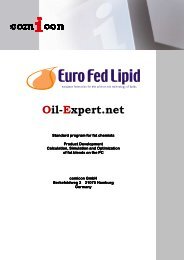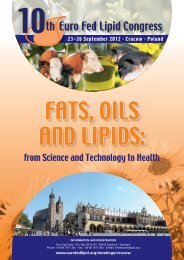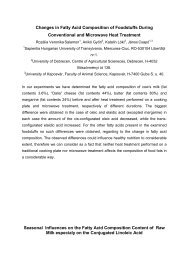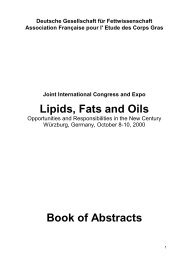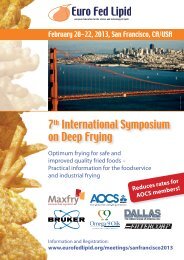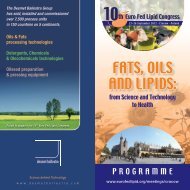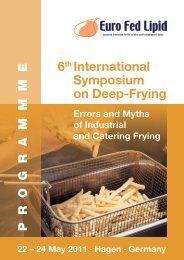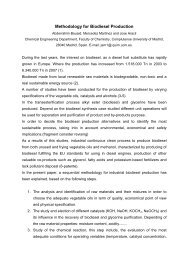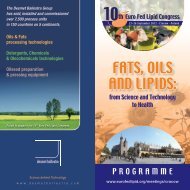Abstracts now available online - Euro Fed Lipid
Abstracts now available online - Euro Fed Lipid
Abstracts now available online - Euro Fed Lipid
You also want an ePaper? Increase the reach of your titles
YUMPU automatically turns print PDFs into web optimized ePapers that Google loves.
P14<br />
Phospholipid turnover in the plasma membrane of phosphate limited<br />
oat (Avena sativa)<br />
Henrik Tjellström, Mats X. Andersson, Karin E. Larsson, R. Henrik Nilsson and Anna<br />
Stina Sandelius<br />
As much as one third of all organically bound phosphate in the plant cell is associated<br />
with phosphate-containing membrane lipids. We have shown that oat grown under<br />
phosphate-limited conditions replaced up to 70% of the plasma membrane and the<br />
tonoplast phospholipids with non-phosphorous lipids, especially the galactolipid<br />
digalactosyl diacylglycerol (DGDG). The phospholipid-to-DGDG exchange appears to<br />
be a general phosphate-saving feature of angiosperms. In parallel to the phospholipid<br />
replacement, phosphate-limited growth condition also led to enhanced phospholipase<br />
activities in the oat plasma membranes: a Ca 2+ -independent phospholipase D (PLD) as<br />
well as a phosphatidic acid phosphatase (PAP) were induced. Native gel<br />
electrophoresis of oat plasma membranes revealed that both the PLD and the PAP<br />
activities co-migrated with a native protein size probably exceeding 100 kD. Three<br />
candidate polypeptides for the lipases were identified by mass spectrometry. However,<br />
one of the three candidates was previously described as a phosphate-deficiency<br />
induced phospholipase C (PLC) in Arabidopsis. A phylogenetic analysis did not reveal<br />
any preferential relation to a PLC or a PLD for any of the polypeptides. The in vivo<br />
significance of the phospholipid turnover in phosphate-limited oat is presently<br />
investigated.


